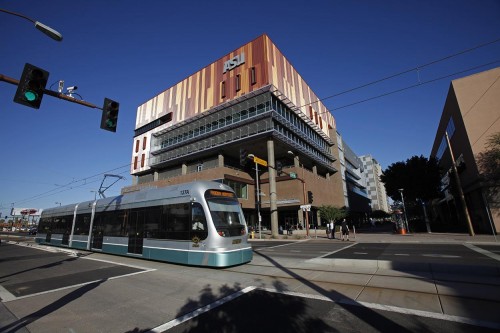It’s a big question for a lot of cities across the United States: Is investing in public transportation and commuting infrastructure worth it?
Many are realizing that it is.
As our own Benét Wilson has written on in the past, young people are multimodal, meaning they chose the best form of transportation for wherever they’re going. Cities with more ways to get across town, from expanded bike lanes to public transportation, do well with the emerging Millennial generation.
It should be no surprise then that Minneapolis, a city popular with Millennials for its high quality of life and relatively low cost of living, became the first American city to make the list of the 20 most bike-friendly cities on the planet put together by Wired and the Copenhagenize Design Company.
The annual list routinely features European cities like Copenhagen and Amsterdam, where investing in bike travel has been popular for some time.
The tech magazine and urban design company consider cities with a regional population over 600,000 and put together an index of 122 cities using things like advocacy, bike facilities and social acceptance to guide their rankings.
For years, Montreal stood head and shoulders above cities in the United States for its bike-friendliness. But now, it has American competition.
Minneapolis certainly has the credentials to make the list, even for a city that deals with snow for much of the year. It has 120 miles of on-street bikeways and 90 miles of off-street lanes, along with political backing for further investment from city officials. It also has a “respectable” bike-share program and has become a leading example for cities in the U.S., according to the list.
The recognition is definitely an indication that its investment is paying off. And as more research is showing, investing in transportation pays off in more ways than one.
Not only will being bike-friendly help Minneapolis continue to attract young people and build a foundation for the future, but bike-friendly improvements have a number of social, economic, environmental, and health benefits that helps society save money.
As Wired reports, studies in Denmark show that society makes a net profit of 23 cents for every kilometer cycled. For every kilometer driven by car, society suffers a loss of 16 cents.
If Minneapolis can fight through cold winters and take advantage of those benefits, any city can. Biking is becoming more and more popular in cities of all sizes, so there is a wealth of story ideas out there.
Find any bike advocacy groups and ask what they feel your local city can do to improve biking. How busy are bike trails in your area? Are your local city officials behind making biking safe and easy for residents? What about businesses? How do they feel they could benefit from more bike traffic?
STORY IDEAS










